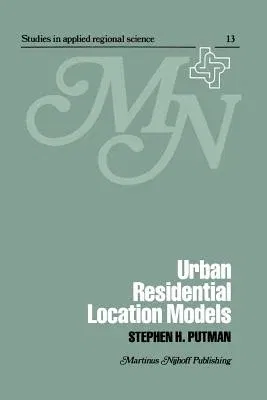S H Putman
(Author)Urban Residential Location Models (Softcover Reprint of the Original 1st 1979)Paperback - Softcover Reprint of the Original 1st 1979, 12 October 2011

Qty
1
Turbo
Ships in 2 - 3 days
In Stock
Free Delivery
Cash on Delivery
15 Days
Free Returns
Secure Checkout
Part of Series
Studies in Applied Regional Science
Print Length
169 pages
Language
English
Publisher
Springer
Date Published
12 Oct 2011
ISBN-10
9400992416
ISBN-13
9789400992412
Description
Product Details
Author:
Book Edition:
Softcover Reprint of the Original 1st 1979
Book Format:
Paperback
Country of Origin:
NL
Date Published:
12 October 2011
Dimensions:
23.39 x
15.6 x
1.02 cm
ISBN-10:
9400992416
ISBN-13:
9789400992412
Language:
English
Location:
Dordrecht
Pages:
169
Publisher:
Weight:
272.16 gm

